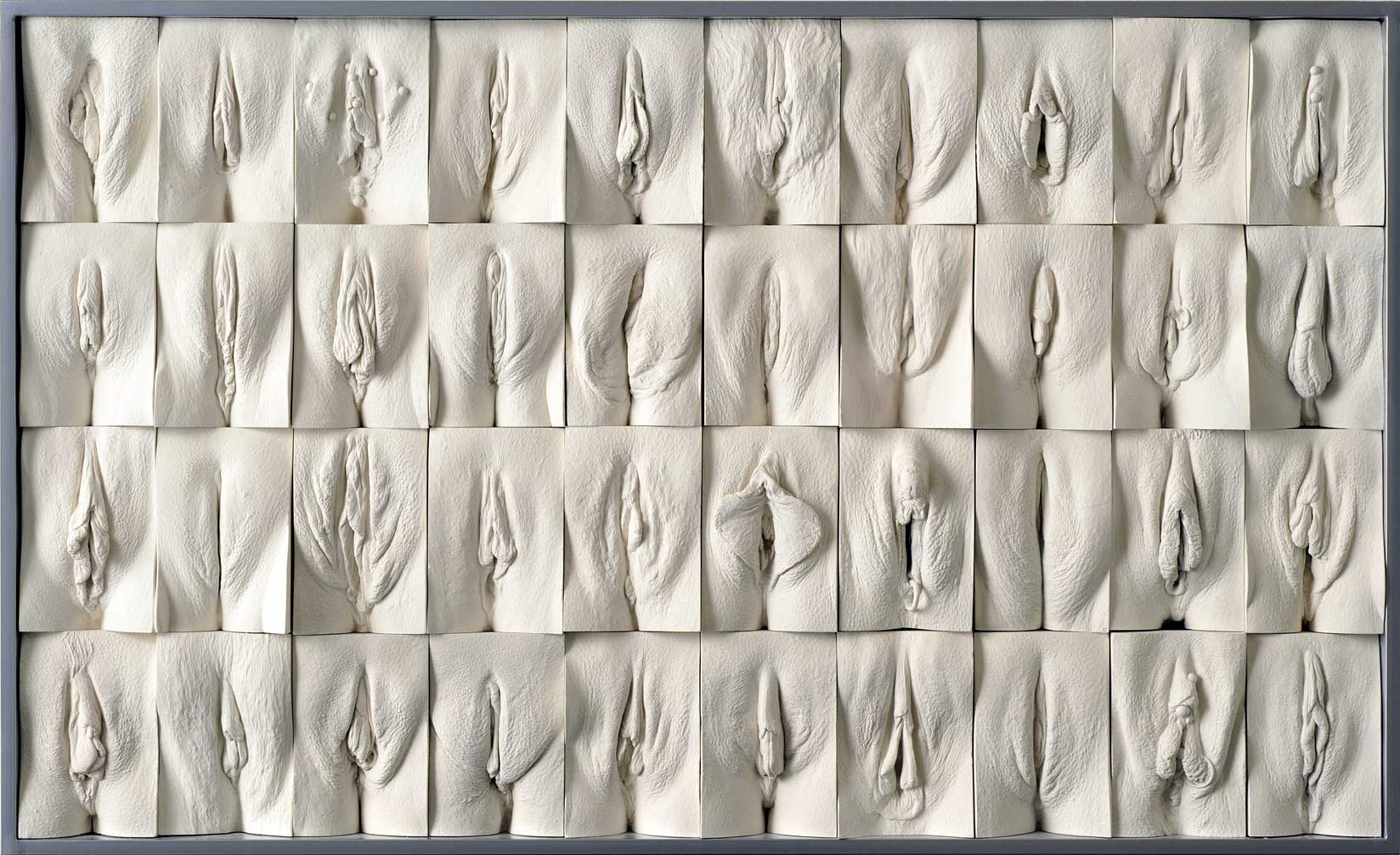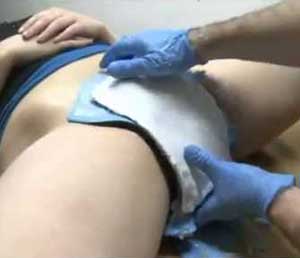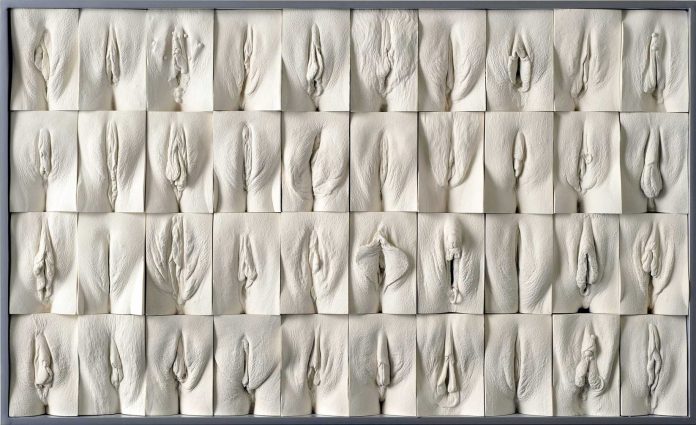by Ashley Rosemont
A British artist has decided that ladies’ genitals are just wonderful and should be the subject of a fine art exhibit. I guess it wouldn’t be the first time (thinking the suggestive paintings of Georgia O’Keefe here). But this is a very unusual exhibit: the subjects for the artwork range in age from 18 to 76, and the individual sculptures, while they may look similar at first glance, are all the unique one of a kind plaster casts of each woman’s vulva. Artist Jamie McCartney managed to organize 400 women subjects: some are twins, some transgendered, some are mothers and daughters. The idea is to showcase women’s common connections through this most intimate body part, cast (literally) as art.

I have had plaster casts done of my face and I can say it is a very intense process; you always wonder if the plaster will actually come off or if you’ll be a statue for all eternity. But the funny thing about plaster is the way that it starts off so soft and pliable and then becomes so hard and permanent. It captures every intricate line, pore, scar and fold in human flesh, making it the perfect medium for this project.
Read on…
McCartney believes the project will help women (and maybe men too) understand that anxiety about our private parts can be a source of shame; especially in an age when images abound of  glamorous women who are practically hairless, endlessly golden and sculpted to emaciated perfection. The idea that our vaginas, the source of life itself, a place of power, pain and pleasure, should also be seen as unique and beautiful, is one that has been a hard sell.
glamorous women who are practically hairless, endlessly golden and sculpted to emaciated perfection. The idea that our vaginas, the source of life itself, a place of power, pain and pleasure, should also be seen as unique and beautiful, is one that has been a hard sell.
Women’s private parts are, well, just that: private and usually difficult to see with the naked (sorry) eye. The notion of female genitalia as somehow “hidden” and “secret” and “mysterious” has partly given rise to odd folklore about vagina dentata (literally, vaginas with teeth; there was a really great little indie horror film about this that came out a few years ago) or other freakish anomalies.
Women’s sexual pleasure is also a source of mystery as well, and it wasn’t until a few decades ago that health textbooks actually began discussing the clitoris as the primary source of women’s orgasmic sensation. After the turn of the century, writers like Simone de Beauvoir, Anais Nin and others began writing more explicitly about women’s sexual pleasure, and it was via erotic literature that many readers learned more about the simple facts of female anatomy. Prior to that, men who lacked imagination or any sense of fairness just assumed women got pleasure from plain old Missionary style sex, which worked just fine for them. The lack of orgsmic sexual relations for married women was a mainstay of American and European culture for centuries, partly due to lack of knowledge about how women’s parts worked, but also because women’s sexual pleasure was not considered significant.
So maybe we’ve come a long way, baby, with sex shops in every city and plenty of websites and publications discussing female sexuality every day. But our acceptance of the female sexual organs has been a slower sell. After the sexual revolution of the 1960s, women’s attractiveness, poised to become a glorious, variable free for all, instead became gradually but increasingly attached to images purveyed by the fashion and porn industries (okay, that is an oversimplification because this article is too short to explain the intricacies of how this happened, but I know you know what I mean). In Western culture in recent years, lady parts are increasingly expected to be impeccably groomed (or even hairless), dyed, vajazzled, and equipped with a cappuccino maker. We’re expected to hire a personal Kegel trainer to keep those muscles supple and purchase crazily-perfumed unguents to make sure we don’t smell like anything that isn’t a tropical flower, a flavor of chewing gum or a household cleaning product.
In other words, we’re expected to treat them as separate from ourselves, or like precious art objects. Which makes what Jamie McCartney is doing even more interesting. And despite the fact that this exhibit is literally a wall of sexual parts, the overall effect is not sexual or erotic. It’s not clinical, either; it’s an opportunity to consider what makes us human, and female. Hats off (and pants off too!) to Jamie McCartney for this fabulous idea.








 Erotic Cinema For Discerning Adults
Erotic Cinema For Discerning Adults Anonymous Adult Search
Anonymous Adult Search